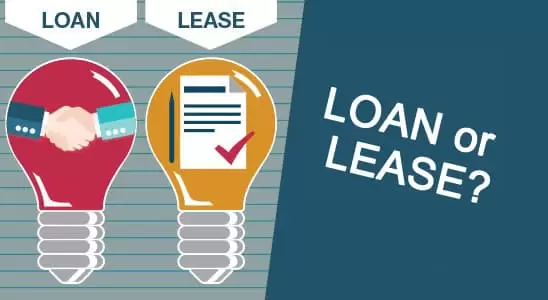Game of Money!
All of us have those financial ups and downs during our life cycle.
For me, when things are financially up I don’t really care if people are going to lease or get a loan, but trust me during the downs we all sure do!
Leasing is known as Ijara in the Islamic Finance. So basically, leasing and Ijara are the same in all the economics aspects. However, there might be some modifications in the contracts of Ijara out of Sharia perspective only, but economically wise Ijara = Leasing.
Loan or Lease?
If You want to buy a car, for example, you go to the car owner; company X then you like a car for $40,000 for example. Now you have two options:
(a) You go to the bank, get a loan of 40,000 and then get the car immediately, but still keep paying the bank the interest (Usury) for 2 years up to 72 months.
(b) Or you can choose to lease the car for a certain period of time paying a payment each month for 2 years or less – according to the leasing period – and not owning the car, unless you pay the residual of the car balance at the end of the time.
As Muslims and according to Sharia law, most of us would go for option (b), just to avoid Usury (Riba) that is paid in loans. As a person who really needs a car, I would go for (b) as well, for many reasons:
- Because it allows me to drive new cars regularly, if I got bored from this car I’d buy a new one next year or month, as I’m not sticking to a certain car.
- If I liked the car so much I can lease it again for an extended period, and if I’m sure about it after using it for 2 or 3 years, for example, I can buy it by paying off the remaining balance (sometimes for even less than the residual agreed on in the contract).
- All capital costs related to the asset such as its replacement in the event of theft, repair in the event of a fire or breakdown are all the responsibility of the Lessor as he is the owner of the asset. And I should only care about day-to-day car expenses.
- If you got the car through a loan, and then your car were stolen, broken or whatever, in this case, you have lost everything.
- In leasing, I’m not worried about depreciation anymore.
So, basically getting a lease is more practical for certain people than getting a loan, especially in durable goods that take a longer time to depreciate.
So what does leasing/ Ijara mean?
“Ijara lexically simply refers to ‘leasing’. Any commodity, for example a car can be leased at a fixed cost per month pre-determined at outside. A standard hire-only agreement. Sometimes a separate agreement is signed in addition to the Ijara agreement which allow the asset at the end of the rental term to be sold by the Owner to the Hirer at a token price. This practice is known as Ijara wa Iqtina and in some respects is similar to contract purchase plans available today.” (source: Islamic Finance Explained, By Sufyan Gulam Ismail)
There are however a few crucial differences between conventional leases prevalent today and a true Islamic lease. The differences will be tackled in an article entitled “The Difference Between Ijara and Lease”.
Finally!
As for now, showing the difference between loan and lease/Ijara takes us back to the Islamic finance and how many financial practices with different names are heading toward the Islamic finance nowadays, without knowing anything about its counterpart in Islamic Sharia Law. So before taking a trick; I mean a loan, why don’t you try the treat; I mean Ijara =)

